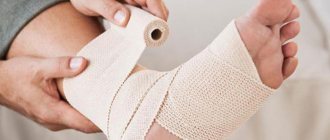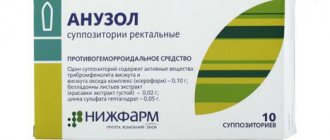Recently, in the West there has been a fairly active fight against various homeopathic medicines intended for weight loss. This does not happen in our state, and these supplements are very popular among women. Today we will talk about the possible benefits or harms of dietress diet pills. This is a relatively new means of combating excess weight on the domestic market, but has already become quite popular. If you go to the manufacturer’s official website, you will find the results of studies on the effectiveness of the drug there. But you should not blindly believe the figures given there, since they do not at all correspond to the paradigms of the molecular effects of drugs on the body. We note that there are a large number of laudatory reviews about this drug on the Internet, which also should not be completely trusted.
Release form and composition
Dietress is available in the form of lozenges: white or almost white, flat-cylindrical, chamfered and scored; on one side of the tablet there is the inscription DIETRESSA, on the other - the inscription MATERIA MEDICA (20 pieces in blisters, 1, 2 or 5 blisters in a cardboard package).
Composition of 1 tablet:
- active ingredient: affinity purified antibodies to cannabinoid receptor type 1 – 0.006 g (applied to lactose in the form of a mixture of three active aqueous-alcohol solutions of the substance, diluted 10012, 10030, 100200 times, respectively);
- auxiliary components: magnesium stearate, microcrystalline cellulose, lactose monohydrate.
Price
Dietress can be ordered and purchased in the online store from the catalogue. Prices in pharmacies are often frightening with their numbers, while purchasing the drug via the Internet will help save money, even taking into account the delivery of the purchase. To make it easier to understand the cost, below is a table with the minimum price for Dietress and its analogues:
| Drug name | Minimum price, rub. | Maximum price, rub. |
| Dietress | 467 | 618 |
| Curdlipid C6 | 504 | 670 |
| Fucus Plus | 571 | 2095 |
Pharmacological properties
Pharmacodynamics
Dietress increases the sensitivity of the type I cannabinoid receptor to endogenous cannabinoid neuropeptides (through allosteric modulation mechanisms). As a result of this, endocannabinoid regulation of the mesolimbic system, including the food center in the hypothalamus, is normalized.
Experimental studies on animals have shown that when the drug is administered, self-stimulation of the lateral part of the hypothalamus is abandoned, which indicates saturation of the emotional positive reinforcement system and a decrease in the euphorigenic effect of food. In conditions of a high-fat diet, a decrease in body weight gain was observed.
Dietress has an inhibitory effect on the process of obesity by reducing the amount of food consumed. At the same time, the drug does not inhibit or stimulate higher nervous activity.
Weight loss is caused by both central and peripheral mechanisms. The latter are associated with the modulation of cannabinoid receptors in fat cells (adipocytes) and the activation of basal metabolic processes in them.
Dietress does not cause drug dependence or addiction, and also does not produce a narcotic effect.
Pharmacokinetics
The pharmacokinetics of the drug has not been studied, since the content of doses of antibodies entering tissues, organs and biological fluids is very small and cannot be analyzed by modern physicochemical methods.
Dietressa's analogues
Dietress is not the only dietary supplement aimed at losing weight by reducing appetite. Pharmacological companies produce many similar homeopathic remedies that not only promote weight loss, but also have a sedative effect. Which one to choose is up to you. Here is a group of the most common analogues of the drug:
- Calcarea carbonica. The need for this drug is experienced by people who are addicted to sweets and cannot control themselves at the sight of cakes. The drug is of marine origin, it is extracted from oysters.
- Fucus Plus. Prescribed for varying degrees of obesity. It helps reduce appetite, improves the functioning of the digestive system, relieves constipation, and eliminates swelling. Fucus Plus increases performance, which is especially important during physical exercise. Directions for use are the same as for Dietressa: the tablet should be dissolved half an hour before meals. The course of treatment is one and a half months.
- Curdlipid. This is a homeopathic drug that is aimed at restoring fat metabolism in the body. It is prescribed for obesity caused even by congenital diseases. It also has a slight therapeutic effect. Curdlipid has a positive effect on the functioning of the liver and gallbladder, reduces high levels of cholesterol in the blood. The dose is set individually.
- Ignacia. It is an extract of a Philippine shrub. The purpose of this drug is to maintain a person’s psychological state while losing weight. If you often eat up your troubles with extra portions, then Ignacia will save you from this habit.
- Ammonium carbonate. Suitable for older sweet tooths. This remedy reduces the desire to eat a double portion of sweets for dessert and regulates glucose levels.
special instructions
Dietressa tablets contain lactose, so the drug is not recommended for use by persons with congenital galactosemia or lactase deficiency and patients with galactose/glucose malabsorption disorders.
At the beginning of treatment with the drug, in rare cases, a slight temporary increase in appetite is possible, which does not lead to weight gain, does not require discontinuation of therapy and goes away on its own within 2-8 days.
Impact on the ability to drive vehicles and complex mechanisms
Dietress does not affect the patient’s psychomotor performance and ability to concentrate when working with potentially dangerous and complex mechanisms.
Side effects
Side effects that may be observed when taking the drug Dietressa are standard: nausea, slight dizziness, temporary problems with stool. In addition, in the first days of taking weight loss pills Dietress can cause a completely opposite reaction to the drug - increased appetite. There is no need to slow down taking dietary supplements, this is how it should be. This will go away in a few days and there will be no weight gain. No side effects were found in case of overdose.
Reviews about Dietress
Reviews about Dietress are found quite often on medical forums. Most of them are negative, which say that the drug did not help cope with excess weight, and in some cases the treatment ended in gaining additional kilograms. Patients note that the drug is quite expensive, but ineffective.
Some women respond positively to the drug and note that they actually lost weight during treatment, although not immediately (the effect may appear a month after the start of therapy). On the positive side, it is also worth noting that Dietress extremely rarely causes side effects.
Contraindications
Dietress also has contraindications. The group of people who should not take the drug includes:
- those losing weight, whose body index is less than 25 kg/m2;
- children and adolescents, permissible age - from 18 years;
- pregnant women and mothers during breastfeeding;
- people with any disorders of the ANS (autonomic nervous system);
- those who suffer from hypersensitivity to lactose (lactase deficiency) - this substance is present in Dietress as an additional ingredient.
The benefits or harms of diet pills Dietressa
We were unable to find unanimity among doctors, whose opinions regarding the supplement turned out to be directly opposite.
Some of them prescribe dietetics for obesity to their patients, while others are completely confident in the ineffectiveness of dietary supplements. The only thing that all nutritionists agree on is that the drug is safe for the body. Among the contraindications, only lactation and pregnancy should be noted. As well as intolerance to the active ingredients by the body. Representatives of the developer company say that their product can be useful for older people who want to lose excess weight. This is due to the fact that the dietary supplement does not contain substances that are questionable from a nutritional point of view, such as cactus extract, hydroxycitric acid, etc. Let’s note a few advantages of dietress:
- Convenient to use.
- The opposite effect does not appear after completion of the course.
- Compatible with various homeopathic remedies and medications.
- Does not cause harm to the body.
- There are no restrictions on working with complex machinery or driving a car.
Dietressa instructions for use
Dosage form lozengesComposition (per 1 tablet) Active substances: Antibodies to cannabinoid receptor type 1, affinity purified - 0.006 g.* Excipients: lactose monohydrate, microcrystalline cellulose, magnesium stearate.
* applied to lactose in the form of a mixture of three active aqueous-alcoholic dilutions of the substance, diluted 10012, 10030, 100200 times, respectively.
Description of the tablet: flat-cylindrical in shape, scored and chamfered, from white to almost white in color. On the flat side with a notch there is the inscription MATERIA MEDICA, on the other flat side there is the inscription DIETRESSA.
Pharmacotherapeutic group for obesity treatment
ATX code : A08AX
Pharmacological properties Pharmacodynamics: through the mechanisms of allosteric modulation, the drug sensitizes the type I cannabinoid receptor, which is accompanied by an increase in its sensitivity to endogenous cannabinoid neuropeptides. As a result, endocannabinoid regulation of the mesolimbic system, including the food center in the hypotholamus, is normalized. It has been experimentally shown that when the drug is administered to animals, self-stimulation of the lateral hypothalamus is abandoned, indicating saturation of the system of positive emotional reinforcement and a decrease in the euphorigenic significance of food. Taking the drug is accompanied by a decrease in food consumption and weight loss, without causing either an inhibitory or stimulating effect on higher nervous activity. The effect of weight loss is due not only to central, but also to peripheral mechanisms - due to the modulation of cannabinoid receptors of adipocytes (fat cells), activation of basal metabolism in them. The drug is not addictive, does not cause drug dependence, and does not have a narcotic effect. Pharmacokinetics: the sensitivity of modern physicochemical methods of analysis (gas-liquid chromatography, high-performance liquid chromatography, gas chromatography-mass spectrometry) does not allow assessing the content of ultra-low doses of antibodies in biological fluids, organs and tissues, which makes it technically impossible to study the pharmacokinetics of the drug.
Indications for use: long-term therapy of patients with overweight or obesity of I-II degree (body mass index ≥ 25 kg/m²) in combination with a moderately hypocaloric diet.
Contraindications : increased individual sensitivity to the components of the drug. Dietressa is not recommended for use in children under 18 years of age due to insufficient data on effectiveness and safety for this age.
Use during pregnancy and breastfeeding, the safety of using Dietressa in pregnant women and during lactation has not been studied. If it is necessary to take the drug, the risk/benefit ratio should be taken into account.
Method of administration and dosage It is recommended to take 6 tablets per day, 1-2 tablets (keep in the mouth until completely dissolved) 15-30 minutes before meals. It is advisable to combine treatment with a moderately hypocaloric diet. Take for a long time - up to three months. If necessary, the course can be resumed.
side effects were identified when using the drug for the indicated indications and in the indicated dosages. Reactions of increased individual sensitivity to the components of the drug are possible.
Overdose No cases of overdose have been reported to date. In case of accidental overdose, dyspepsia may occur due to the excipients included in the drug.
Interactions with other medicinal products No cases of incompatibility with other medicinal products have been registered to date.
Special instructions The drug contains lactose, and therefore it is not recommended for use in patients with congenital galactosemia, glucose or galactose malabsorption syndrome, or congenital lactase deficiency. Dietress does not affect the ability to drive vehicles and other potentially dangerous mechanisms. In a small number of cases, at the beginning of a course of therapy with Dietress, a temporary (from two to eight days) slight increase in appetite may be observed, which does not cause weight gain and does not require discontinuation of the drug.
Release form: lozenges. 20 tablets each in a blister pack made of polyvinyl chloride film or aluminum foil. 1, 2 or 5 blister packs together with instructions for medical use are placed in a cardboard pack.
Storage conditions : protected from light, at a temperature not exceeding 25 °C. Keep out of the reach of children.
Shelf life 3 years. Do not use after the expiration date.
Conditions for dispensing from pharmacies without a prescription
How does Dietress work?
Speaking about the benefits or harms of Dietress diet pills, it is necessary to consider the mechanisms of operation of the drug.
Since we were unable to find the results of independent research, we will have to be content with the description from the manufacturer. According to the creators of the product, dietress affects those parts of the brain that are responsible for the feeling of hunger. Since appetite decreases, a person gets rid of excess weight. The active ingredient of the drug is antibodies that have undergone affinity purification and are capable of acting on type 1 cannabinoid receptors. Based on this statement, the drug is not able to interact with other brain receptors.
Here are the main effects that can be obtained by using Dietress:
- Appetite is suppressed, especially in the evening.
- A person experiences satiety faster.
- By reducing the size of food portions, lipolysis processes are activated.








